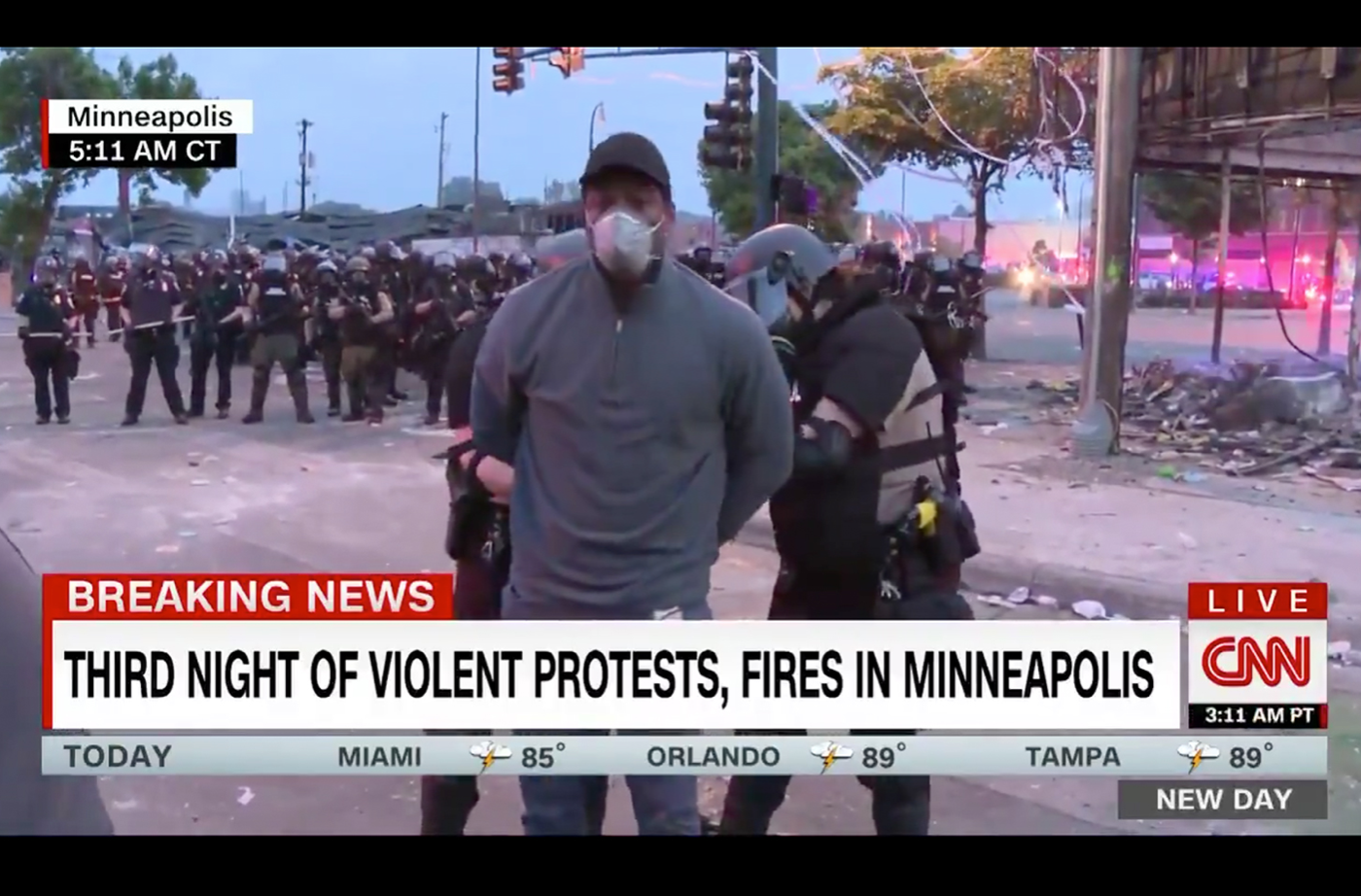I’ve been in journalism for 15 years. Early in my career, I saw my desk covered by Hillary Clinton TIME covers that folks defaced with disgusting vitriol and mailed back to us. I was inundated by racist letters I received about then-Senator Barack Obama. But I was 22 years old, Black and Latinx, and ready to represent all the people before me who didn’t have the chance.
When Tamir Rice was gunned down in a Cleveland park while playing with a toy, I edited stories about his murder — and the Black public outcry that seemed to fall on deaf ears — while I felt my heart split open for a 12-year-old boy. The night Trayvon Martin’s murderer walked free, I fired up my laptop. I swallowed my emotions and hugged my Black colleagues who were terrified for their children, and I put some of that pain on my shoulders for them. Whenever these situations happen, I bristle, I brace myself, and I get to work.
But this is different. Flipping between stories and emotions, taking rapid-fire hits to my heart, I’ve reached a breaking point. In the month of May alone, we learned of the murder of Ahmaud Arbery for simply running while Black; we found out that police stormed Breonna Taylor’s home looking for someone who had already been apprehended; we watched a woman threaten Christian Cooper with a weaponized 911 call after he asked her to leash her dog in Central Park; we saw George Floyd die in the street, his airway crushed under the knee of a Minneapolis police officer. It was horrifying, but I could handle it. It’s what I went to school for. It’s what I love to do — tell the story.
Black people are disproportionately dying from Covid-19; George Floyd survived the virus and still died with cries of “I can’t breathe.” Where is the justice? Where is the relief?
But the final straw for me came on Friday morning, when I saw the footage of CNN correspondent Omar Jimenez being arrested live on television while covering the ensuing Minneapolis protests. My name is Jada Gomez. Only syllables and circumstances separate us. His mouth was covered with a mask, but the fear in his eyes traumatized me. I saw myself in his face; I saw my LEVEL colleagues in his face; I saw that if this happened to any of us we would also be rendered powerless. Even though we were just doing the job we loved. The job we went to school for, and walked through the doors of opportunity made possible by previous generations of Black people.
And I broke.
I broke for all 15 years of lives lost, of tear gas in the streets, of acquittals and unchecked brutality. I broke for all the slights and microaggressions I had overlooked at work because I wanted to be the bigger person. I broke because I’m experiencing a global pandemic, and I live, alone, in its epicenter. Black people are disproportionately dying from Covid-19; George Floyd survived the virus and still died with cries of “I can’t breathe.” Where is the justice? Where is the relief?
My heart ripped. When that dam broke, people who don’t look like me finally began to stand with me. It took 15 years for that to happen — but now that it did, it doesn’t make things any easier.
Whenever I can’t find the words, I turn to music. I turn to Stevie Wonder’s pain so visceral you could almost reach out and feel it on “Evil.” I remember listening to Mariah Carey’s debut album and singing “There’s Got to Be aWay,” with all the conviction and hope of a seven-year-old. How are we still in the same place three decades later? And like many of us Black folks, I summon my courage and find some belief of a better future whenever I hear “Optimistic” by Sounds of Blackness.
To my fellow Black editors and reporters, I know this time hurts unbelievably. And although the pain is especially vicious this time, we are still pushing through to get the work done. We have people counting on us who we will never ever let down, and we stand on the shoulders of giants.
With all the love in my heart, and all the prayers for a better tomorrow.
Read more: healing., a playlist by Jada Gomez-Lacayo on Spotify
